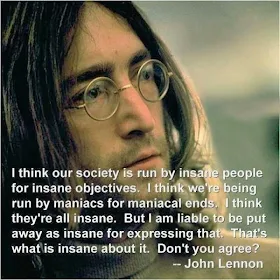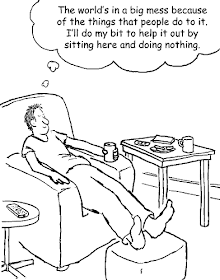 |
Since the 1970s we are increasingly called Consumers rather than Citizens,
and it makes a big difference in how we feel and act. |
What’s in a name? That which we call a Consumer by any other name would spend just as much.
I know not how to tell thee who I am.
The name consumer, dear reader, is hateful to myself because it is an enemy to so many.
Had I written it I would tear the word.
With apologies to William Shakespeare, today I consider what it means to be labeled a Consumer.
Maybe you noticed how in the past few decades we have all gone from being Citizens to being Consumers. Since the 1970s the term 'consumer' has outstripped 'citizen' and its use is still on the rise.
The changeover was made official in my own country recently during the speech from the throne when the Canadian government chose the term to refer to its Citizens.
In the speech the government vowed to protect Canadian Consumers (not citizens) and said, “When Canadians make decisions about
how to spend their money, they must be assured of a voice, a choice, and fair treatment." (emphasis is mine)
Wow - thanks but I really would rather be known as a Citizen and be assured a voice, a choice, and fair treatment when I try to participate in making this a better country for all. Instead I risk being put on the government's well-documented "Enemy List".
So please do not call me a Consumer. I am a Citizen.
A
Citizen is someone that takes an active role in their community. Citizens enjoy the care and protection of their governments, and are granted certain rights and privileges by the state.
Consumers on the other hand, buy stuff. They take an active role in the marketplace while fulfilling their needs, wants, dreams, desires, cravings, and fantasies. Consumers do not enjoy the care and protection of anyone because in the marketplace it is "buyer beware".
The only rights and privileges consumers have is the right to credit, and the privilege to buy more than they need.
Consumers are only concerned with the price of things, while Citizens want to know about their value. Consumers compete, while Citizens cooperate.
Psychological research has shown that economic terms such as 'consumer' are associated with behaviours showing lower environmental concern and conservation behaviour, greater competitiveness and profit-seeking, and lower well-being.
In the eyes of our pro-business governments, Citizens are money takers, while Consumers are money makers. Citizens are demanding while Consumers are placated.
Today Consumers are being referred to by many other names, and none of them are very flattering.
Synonyms For Consumer
- Cashholes
- Purchasebots
- Buying Drones
- Spendoids
- Shoppertrons
- Wallet Mongers
- Money Grunts
- Shopaholics
Being called a Consumer by the very government that ignores my active role as a participating Citizen is insulting and demeaning.
In the future please refer to me as a citizen, a person, a comrade, or even a dude, but please don't call me a Consumer.





















